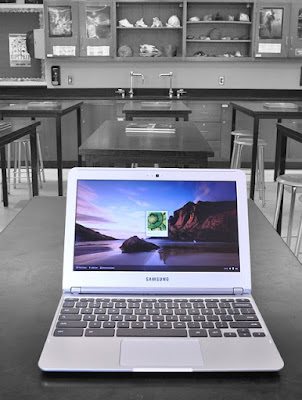Learning Computer Basics .A Comprehensive Guide for Beginners
Computer skills are an essential skill in today's digital world. Knowing the basics of computers is very important whether you are a professional, student or someone who enjoys technology. This is the starting point for understanding computer fundamentals.
1. What are the basic principles of computer education?
Learning the basics of computers requires an understanding of both hardware and software components. It begins with an introduction to hardware (the actual components of a computer) and software (the operating system and the applications that run on it).
Basic hardware for a computer
It consists of the following four main parts
Central Processing Unit (CPU)
Often called the brain of the computer, it performs computing and interprets commands
Memory (RAM) The CPU
needs this short-term storage to process data and tasks quickly.
Storage
Permanent data storage devices, such as solid state drives (SSD) or hard drives (HDD).
Input and Output Devices
Peripherals used to communicate with the computer include keyboard, mouse and printers.
Simple Software for PC Contains
Operating System (OS): Software (such as Windows, macOS, and Linux) that controls hardware and software resources.
Applications are programs designed to perform specific functions, such as web browsing or word processing.
2. How can I start studying computer fundamentals?
Here are some easy steps to learn computer basics
1. Familiarize yourself with the hardware: Find out what each part achieves and how it works.
2. Recognize operating systems
Learn how an operating system works and what its features are so you can find your way
around it.
3. Review simple software programs: Be comfortable using standard software, such as email clients, web browsers, and word processors.
4. Practice the basics: Learn how to do simple tasks like managing directories, using search capabilities, and saving files.
3. How can I learn computer basics?
To study computer fundamentals, there are many materials available:
Online lessons: Beginner-friendly courses can be found on websites like LinkedIn Learning, Coursera, and Khan Academy.
Community Classes: Many area libraries and community centers offer free or low-cost computer classes.
Books and Guides: Structured learning can be facilitated through books and e-books on computer basics.
Practice: Practical experience is very important. Use the computer for a while to help you remember what you've read.
4. What are basic computer knowledge items?
Important parts to pay attention to are:
Basic computer functions: using the desktop, controlling Windows, and turning the machine on and off.
The creation, storage, arrangement, and deletion of files and folders is known as file management.
Internet skills include searching, browsing, and understanding online safety.
Using e-mail includes writing, forwarding and organizing e-mails.
Software Fundamentals: Be able to run basic software programs.
5. What are the basic principles of computer software?
Must know computer software:
Operating System: Learn about the different types of OS and their features.
Productivity software: Learn how to use spreadsheets, word processors, and presentation programs.
Security software: To protect your computer, familiarize yourself with the basics of firewalls and antivirus software.
6. What are the essential computer skills of beginners?
Basic computing skills for beginners include:
Using basic tools and configurations to navigate the operating system.
Use of input devices: Keyboard and mouse skills.
Internet Navigation: Using search engines and web browsers effectively.
Basic Troubleshooting: Identifying and fixing common problems.
7. Getting started with computer basics
For those who are new to computers, it can be very beneficial to start with structured courses. Search for:
Tutorials for Novices: Internet-based content or programs designed specifically for beginners.
Interactive learning refers to programs and online resources that provide interactive tasks.
8. What are the basic courses in computer for beginners?
Introductory computing classes often cover the following topics:
Overview of Computers: Contains information about hardware, software, and basic functions.
Email, the Internet, and digital communication are important topics in digital literacy.
Office Applications: Instructions for using programs such as Google Workspace or Microsoft Office.
9. Acquiring basic computer skills
To effectively learn computer fundamentals
Set Pretensions Identify what specific chips you want to get.
Practice Tools Use software and online tools designed for skill building.
Ask for help Don't be afraid to ask for support or join a study group.
10. Computer Basics Assignments and Assignment Plans
May include creating an assignment plan for computer basics.
Introduction to hardware and software overview of factors and their functions.
Basic operation Hands-on conditioning to exercise using a computer.
Exercises in setting up and handling train operation lines.
Internet and dispatch guided practice with browsing and dispatch tasks.
11. How to learn basic computer skills.
Get Started with a Structured Approach Use the Freshman's Attendant and step-by-step instructions.
Practice regularly Spend time practicing what you've learned to build confidence.
Use the online treasure trove of websites, vids, and tutorials that can provide ongoing support.
Learning computer basics involves understanding both the hardware and the software, practicing key tasks, and using available resources to build confidence. With dedication and the right tools, you'll be well on your way to learning the fundamentals of computing.




Post a Comment